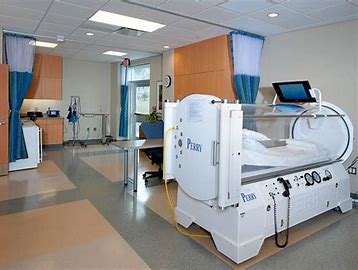The Federal Government has inaugurated a committee tasked with establishing the National Health Facility Regulatory Agency (NHFRA) as part of efforts to improve the country’s healthcare system.
The agency is expected to play a pivotal role in ensuring that healthcare facilities across Nigeria adhere to the highest standards of care.
The Minister of State for Health, Dr Tunji Alausa, speaking at the inauguration in Abuja on Wednesday, emphasised the importance of a robust regulatory framework in addressing evolving challenges in the healthcare sector.
“Our healthcare facilities are the frontline in our battle against diseases; the sanctuary where life begins, and often, where it is saved.
“It is our duty to ensure that these institutions operate at the highest possible standards, providing care that is not just adequate but exemplary and ethical,” Alausa said.
The minister said that the committee’s formation reflected the Federal Government’s commitment to improving healthcare standards nationwide.
He referenced international models such as the United Kingdom’s Care Quality Commission (CQC) and the United States’ Joint Commission as inspirations for NHFRA.
He outlined the committee’s mandate which included designing NHFRA’s organisational structure, drafting enabling legislation and developing comprehensive operational guidelines.
He said that the commission would also engage with stakeholders, mobilise resources, and prepare an implementation plan.
He urged the committee members to bring their expertise, dedication, and commitment to bear in achieving the vision.
“The establishment of NHFRA is expected to significantly enhance the safety, efficiency, and equity of Nigeria’s healthcare system,” Alausa said.
He assured the committee of his full support, noting that the agency has the potential to serve as a model for the region.
The Chairman of the NHFRA committee, Dr Richard Ajayi, highlighted the agency’s novel approach, which shifted the focus from professional regulation to service-oriented healthcare, emphasising patient safety and quality care.
“This is the first time the country will have an agency focused on service.
“We are going to model this to prioritise patient safety, deliver effective nutrition therapy, and ensure that we are responsive and caring.
“With the kind of committee that the minister has put together, I am confident that we will achieve the objectives of building a better healthcare framework for Nigeria,” Ajayi said.
The Kwara State Commissioner for Health, Dr Amina Ahmed El-Imam, stressed the urgency of addressing critical health issues such as maternal and child mortality.
El-Imam emphasised the need for better regulation and quality care to improve overall health outcomes.
“The direction that the ministry of health is taking is to significantly and rapidly address indicators that put the country in a bad light, notably maternal and child mortality.
“This will help ensure that women do not die while having children, and that the quality of care provided encourages health-seeking behavior, directly impacting health outcomes,” he said.
The Ogun Commissioner for Health, Dr Tomi Coker, underscored the importance of establishing standards for healthcare facilities, ensuring accountability, and improving the quality of care, particularly in reducing maternal and child mortality in Nigeria.
“Nigerians should look forward to being able to exercise their rights to good and quality care.
“We will regulate those who provide care for our children and mothers to ensure that the unacceptable mortality rates we currently see decrease significantly in the coming years,” Coker said.
Earlier in her remarks, the Permanent Secretary of, the Federal Ministry of Health and Social Welfare, Ms Daju Kachollom, highlighted the significance of the committee’s task in establishing NHFRA.
She emphasised its vital role in ensuring the safety, efficiency, and equity of healthcare services across Nigeria.
“Your work will serve as the blueprint for an agency that will play a crucial role in safeguarding the health and well-being of all Nigerians,” Kachollom said.
NAN


